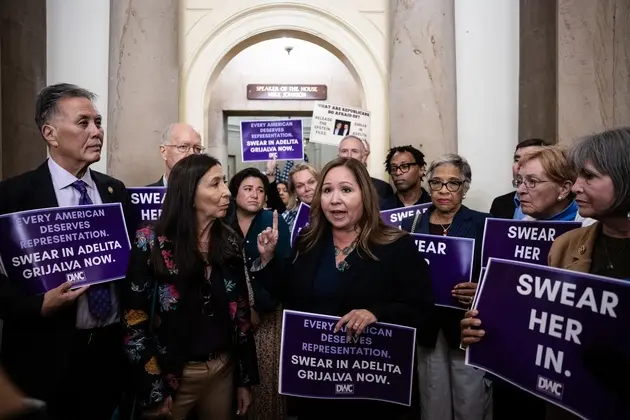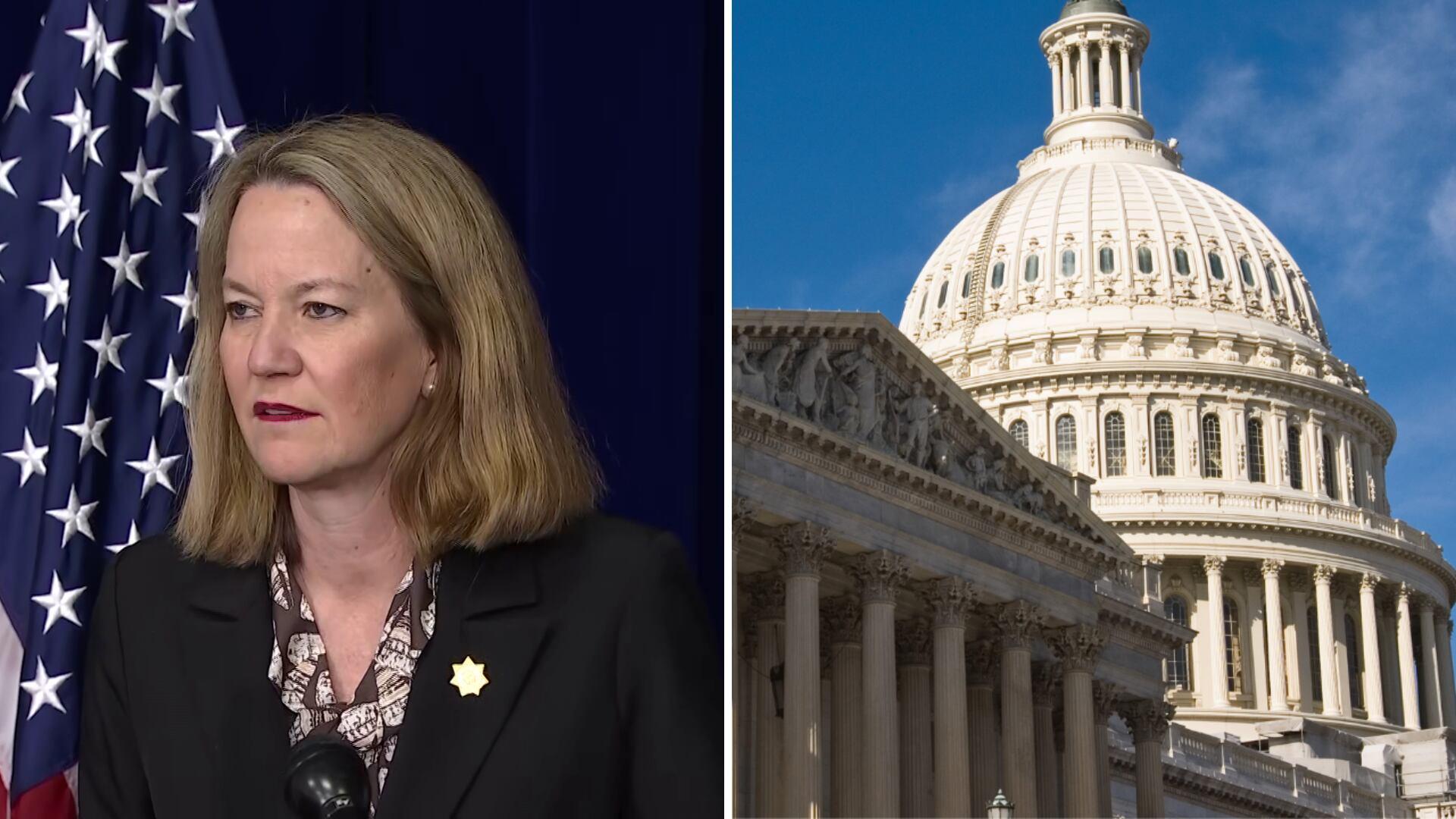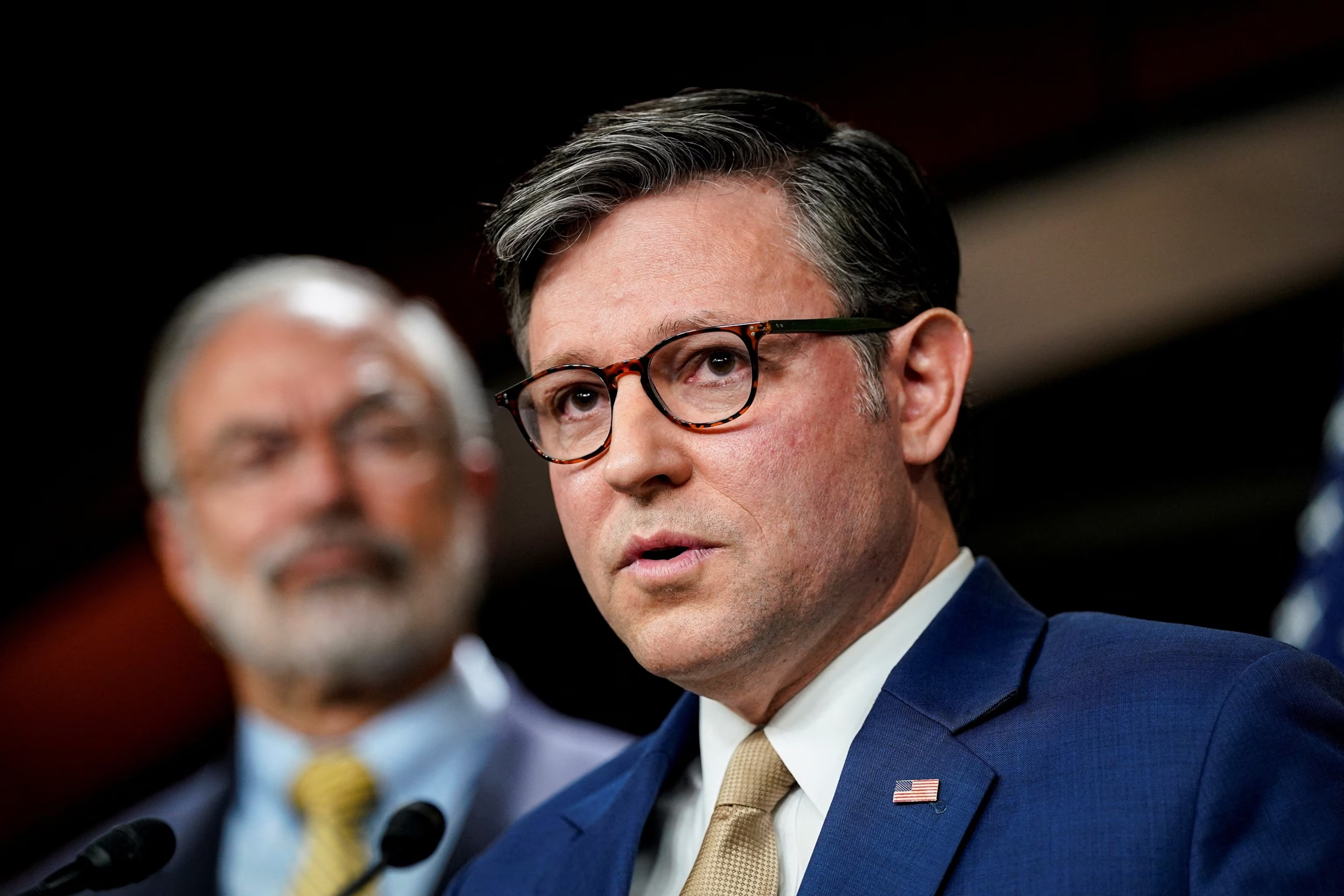In a dramatic escalation that has sent shockwaves through Washington and beyond, Arizona Attorney General Kris Mayes has unleashed a blistering federal lawsuit against House Speaker Mike Johnson, accusing him of orchestrating a unconstitutional blockade against democracy itself. The suit, filed on October 21, 2025, in U.S. District Court in Washington, D.C., demands the immediate swearing-in of Rep.-elect Adelita Grijalva, the Democrat who triumphed in a special election last month to succeed her late father, the revered Rep. Raúl Grijalva. This isn’t just a procedural spat—it’s a frontal assault on the sacred right of voters, with Mayes arguing that Johnson’s tactics amount to nothing less than voter suppression on a national scale.

The backstory reads like a political thriller gone awry. Raúl Grijalva, a progressive icon who fought tirelessly for environmental justice, labor rights, and immigrant communities in southern Arizona, passed away suddenly in August 2025, leaving his Tucson-based 7th Congressional District seat vacant. In the ensuing special election on September 23, Adelita Grijalva—his daughter, a longtime community organizer and advocate for working families—stormed to victory with a commanding 68% of the vote against Republican challenger Daniel Butierez. Her win was no fluke; it reflected the district’s deep-blue leanings and her personal legacy as the heir to her father’s unyielding commitment to the people.
Yet, nearly a month later, Grijalva remains sidelined on the sidelines of power. Johnson’s House, mired in a self-inflicted government shutdown that began on September 19 over bitter funding disputes, has refused to convene in “regular session.” This procedural limbo, the lawsuit contends, is a deliberate ploy to deny Grijalva her oath, stripping over 800,000 Arizonans of their congressional voice. “Speaker Mike Johnson is actively stripping the people of Arizona of one of their seats in Congress and disenfranchising the voters of Arizona’s seventh Congressional district in the process,” Mayes declared in a fiery statement. “By blocking Adelita Grijalva from taking her rightful oath of office, he is subjecting Arizona’s seventh Congressional district to taxation without representation. I will not allow Arizonans to be silenced or treated as second-class citizens in their own democracy.”

The complaint pulls no punches, dismantling Johnson’s excuses with surgical precision. Citing Article I, Section 2 of the Constitution, it asserts that once a candidate meets the basic qualifications—age 25, U.S. citizenship for seven years, and residency in the state—seating is mandatory upon certification of election. Johnson doesn’t contest Grijalva’s credentials; indeed, Arizona officials certified her victory promptly. Nor is there any logistical barrier: the Speaker has been spotted routinely at the Capitol during the shutdown, and the Constitution doesn’t specify that he alone must administer the oath—any qualified official could step in. The suit even floats a remedy: if Johnson stonewalls, let another authority swear her in.

At the heart of this saga lurks a darker motive, Democrats charge. Grijalva’s seating would tip a delicate discharge petition, providing the crucial final signature needed to force a House floor vote on releasing the long-buried Jeffrey Epstein files—documents detailing the financier’s web of elite connections and alleged sex-trafficking ring. As a vocal proponent of transparency, Grijalva has pledged her support, vowing to “shine a light on the shadows of power that have protected predators for too long.” Her absence conveniently shields Republicans from that uncomfortable reckoning, especially amid the shutdown’s chaos, where Johnson seeks leverage against Senate Democrats to ram through Trump-era spending cuts.
Johnson’s retorts have only fueled the fire. Dismissing the suit as “patently absurd,” he claims it’s a publicity stunt by Mayes, who he says lacks jurisdiction over congressional matters. He insists he’ll swear Grijalva in “as soon as Democrats help reopen the government,” framing the delay as adherence to precedent—like when then-Speaker Nancy Pelosi waited out recesses for GOP winners. But critics, including constitutional scholars, scoff at the comparison: Pelosi’s holds were brief and non-partisan; Johnson’s stretches into weeks of outright obstruction. In a particularly tone-deaf jab, Johnson mocked Grijalva’s social media savvy, sneering that she should “stop doing TikTok videos and start serving her constituents.” Grijalva fired back: “Speaker Johnson’s obstruction has gone far beyond petty partisan politics—it’s an unlawful breach of our Constitution and the democratic process. The voters of Southern Arizona made their choice, yet for four weeks, he has refused to seat a duly elected Member of Congress—denying Southern Arizona its constitutional representation.”

The fallout has been swift and scorching. House Minority Leader Hakeem Jeffries lambasted the delay as “a disgrace,” warning of “swift and decisive legal action” that Mayes has now delivered with gusto. Progressive firebrands like Rep. Ro Khanna urged Johnson to “just swear her in and face the vote—delaying the inevitable only makes you look scared.” On the ground in Arizona, constituents are reeling: Grijalva’s district office sits dark, fielding desperate calls from families navigating the shutdown’s fallout—lost federal paychecks, stalled benefits, unaddressed pleas for aid. “People are showing up at my dad’s old office at El Pueblo Neighborhood Center, pulling on the door, and nobody’s there,” Grijalva lamented in a recent interview. It’s a visceral reminder that this isn’t abstract gamesmanship; it’s real lives hanging in the balance.
Legal eagles are buzzing with optimism for the plaintiffs. “If the Speaker were granted that authority, he could thwart the people’s choice of who should represent them in Congress,” the lawsuit thunders. “Fortunately, the Constitution does not give that authority to the Speaker—or anyone else.” Precedents like Powell v. McCormack (1969), where the Supreme Court rebuked congressional exclusion of a qualified member, loom large. Mayes seeks an expedited ruling, potentially teeing up emergency appeals that could land before the high court by year’s end.
This showdown transcends one seat in the desert Southwest; it’s a litmus test for American democracy in an era of MAGA-fueled brinkmanship. If Johnson prevails, it greenlights Speakers to cherry-pick representatives based on party loyalty, rendering elections optional for the powerful. If Mayes wins, it reaffirms that voters—not vendettas—hold the reins. As Grijalva rallies supporters outside Johnson’s office, her message resonates nationwide: “Arizona will not beg for its full representation in Congress.” For millions watching, the question burns: How low will the GOP go to cling to control? In the shadow of Epstein’s secrets and a shuttered government, the answer feels perilously close to rock bottom. Share this outrage—because silencing one district today could mean erasing yours tomorrow. Democracy demands vigilance, now more than ever.